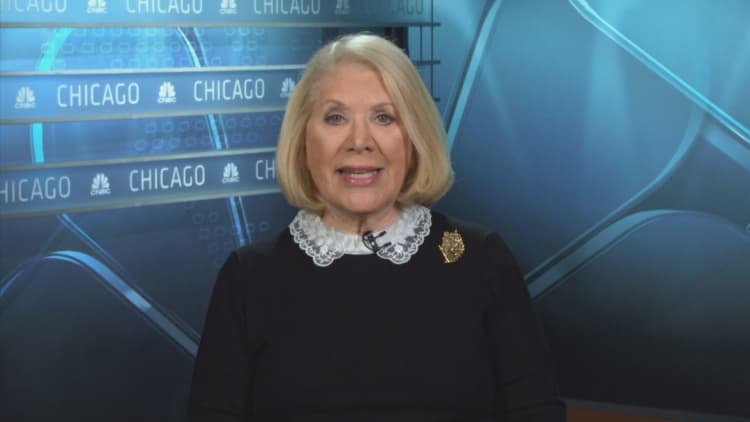
If Deputy Attorney General Rod Rosenstein is fired, it would be similar to a pivotal moment in the Watergate scandal, said former Watergate prosecutor Jill Wine-Banks.
After news swirled on Monday that Rosenstein would be departing the Justice Department, the White House said President Donald Trump will meet with Rosenstein on Thursday. The No. 2 DOJ official is overseeing special investigator Robert Mueller's probe into Russian interference in the 2016 election and possible obstruction of justice by Trump.
"If he is fired it could look like it is a part of the obstruction of justice that continues," Wine-Banks said on CNBC's "Power Lunch" on Monday. "It could look exactly like the 'Saturday Night Massacre' taking place over a protracted period of time."
The "Saturday Night Massacre" refers to the firing of the Watergate special prosecutor Archibald Cox. On Oct. 20, 1973, President Richard Nixon asked Attorney General Elliot Richardson to fire Cox, but Richardson refused to do so and resigned. Deputy Attorney General William Ruckelshaus, who then ascended to the top spot, did the same. It was Robert Bork, who then became acting Attorney General, who dismissed Cox.
Rosenstein's fate came into question after Friday's New York Times report that he made remarks about possibly secretly recording Trump and getting members of the president's Cabinet to invoke the 25th Amendment to remove Trump from office. He reportedly floated the ideas in the weeks after Trump fired FBI Director James Comey in 2017.
Other reports have suggested Rosenstein was being sarcastic when he made those comments.
On Monday, Axios reported that Rosenstein is resigning, citing sources with knowledge. However, that report was contradicted by other news outlets, including NBC News' Pete Williams, who said Rosenstein would not resign of his own accord and will only depart if fired.
Wine-Banks, an NBC News and MSNBC contributor, said she certainly hopes Rosenstein doesn't resign.
"We really need him to stay to keep oversight of the investigation, which he has allowed to proceed in a reasonable fashion," she said.
"We don't know who would ultimately take over that position and whether that would interfere further with the Mueller investigation or whether this is even just a step toward getting rid of Mueller," she added.
She sees "so many" similarities between Mueller's probe and the Watergate investigation but said the big difference is so many things are happening publicly this time around.
"We don't have to wait for the tape recordings that we had to wait for in Watergate. We have the president tweeting things that look like obstruction," said Wine-Banks.
That said, she doesn't think the presidency is at risk, because of the current Congress, which has supported Trump.
The White House did not immediately return a request for comment on Wine-Banks' remarks.
— CNBC's Dan Mangan, Jacob Pramuk and Kevin Breuninger contributed to this report.


